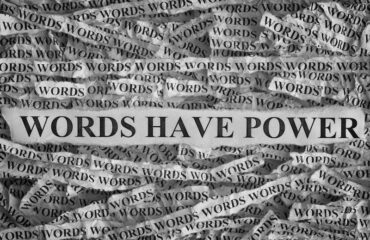Every family has one — Grandpa who is an “alkie,” the “junkie” cousin, the little brother who has become a “pothead,” and Mom who takes too many Vicodin. But what we call these people not only affects how we think about them but also affects what services they receive.
Positive Changes in Language
Six years ago, the American Psychiatric Association published the fifth edition of the Diagnostic and Statistical Manual of Mental Disorders called DSM-5. It eliminated categories of “misuse,” “dependency” and “addiction/alcoholism” and instead adopted criteria establishing a spectrum disorder called “Substance Use Disorders.” A person with this condition should be referred to as having a substance use disorder (SUD) that may be mild, moderate or severe and not be referred to as an addict or alcoholic. Using “person-first language” maintains the humanity of the person and asserts their condition does not define them. It also portrays the person with a potentially stigmatizing condition with neutral, rather than pejorative, language. It is why people with disabilities are asking to be referred to that way instead as “the disabled.” But is person-first language just some politically correct nonsense? No, it isn’t; words and how people are referred to have tremendous power.
As previously noted in this blog Words Matter: Changing Our Language on “Addiction” the World Health Organization (WHO) did a study that found drug “addiction” is the most stigmatized social problem in the world. A person subject to that kind of stigma is less likely to seek help for their condition and that helps explain why only 11% or so of people with SUDs go into treatment.[1] Stigma not only prevents people from getting the help they need but also affects infant mortality and the high cost of treating a substance-affected neonate. Women are further stigmatized when using alcohol and other drugs while pregnant and they may also fail to seek prenatal care thus adversely affecting their offspring.

Substance Abuser vs. Person Having a Substance Use Disorder
As reported in the earlier blog, a study published in the International Journal of Drug Policy found that even doctors are influenced by derogatory language when discussing people who are “addicted” to a substance. In that study, clinicians were given two identical situations with only two phrases used differently to describe the individuals. In one scenario, the phrase “substance abuser” was used to describe the patient and in the other situation, the phrase used was “having a substance use disorder.” What was the result? Doctors found that someone who was a “substance abuser” was deserving of blame and punishment unlike the person who had a substance use disorder. What is more is astonishing is the finding that while there was no difference in the belief that either individual was more or less a social threat, yet the “substance abuser” was more culpable and deserved more punishment than the “person with the substance use disorder.”
In response to findings like these, as Sobernation pointed out, in 2017 the Associated Press eliminated “addict” as a noun in their stylebook.
Michael Botticelli, former Director of The Office of National Drug Control Policy, issued a memo in 2017 to Federal agencies on changing the language around SUDs. The document is highly footnoted and explains in detail the deleterious effect stigmatizing language can have.
Changing language takes a conscious effort on the part of the speaker or writer but it is an effort well worth making. When stigmatizing language has the potential to be so harmful, why would you hesitate to eliminate it from your vocabulary?

[1]Center for Behavioral Health Statistics and Quality. (2016). 2015 National Survey on Drug Use and Health: detailed tables—prevalence estimates, standard errors, p values, and sample sizes. Substance Abuse and Mental Health Services Administration, Rockville, MD.
Get more articles like this
in your inbox
Subscribe to our mailing list and get the latest information and updates to your email inbox.
Thank you for subscribing.
Something went wrong.






